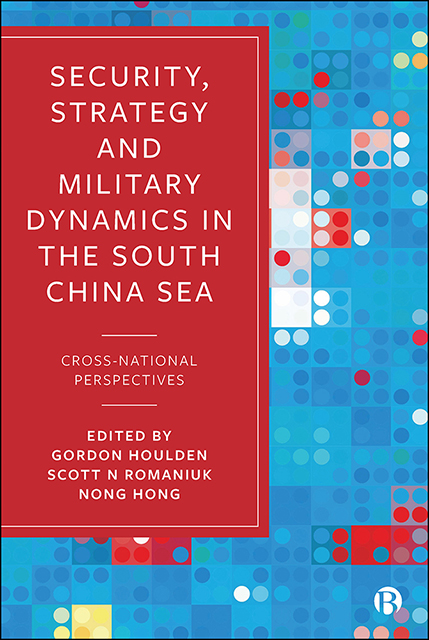Book contents
- Frontmatter
- Contents
- List of Tables
- Notes on Contributors
- Foreword
- Introduction: Strategic Challenges and Escalating Power Rivalry in the South China Sea
- 1 Between Competition and War: Complex Security Overlay and the South China Sea
- 2 The South China Sea as an Echo Chamber of Chinese Foreign and Security Policy
- Part I Claimants of the Contested South China Sea
- Part II Non-Claimants in Southeast Asia
- Part III Quadrilateral Security Dialogue States
- Part IV Non-Claimants in Europe and Eurasia
- Conclusion: Looking over the Horizon – Prospects for Settlement of the South China Sea Dispute?
- Index
11 - ASEAN’s Involvement in the South China Sea Disputes: The Economics-Security Conundrum
Published online by Cambridge University Press: 13 April 2023
- Frontmatter
- Contents
- List of Tables
- Notes on Contributors
- Foreword
- Introduction: Strategic Challenges and Escalating Power Rivalry in the South China Sea
- 1 Between Competition and War: Complex Security Overlay and the South China Sea
- 2 The South China Sea as an Echo Chamber of Chinese Foreign and Security Policy
- Part I Claimants of the Contested South China Sea
- Part II Non-Claimants in Southeast Asia
- Part III Quadrilateral Security Dialogue States
- Part IV Non-Claimants in Europe and Eurasia
- Conclusion: Looking over the Horizon – Prospects for Settlement of the South China Sea Dispute?
- Index
Summary
Introduction
It is important to note that the South China Sea (SCS) disputes are multidimensional and ASEAN is selectively involved in some aspects of these dimensions. There are at least four major dimensions that one can observe in the disputes. Setting the stage for the volume, Joshua Hastey and Scott N. Romaniuk, and then Romaniuk and Tobias Burgers address the major pillars of conflict and geostrategic interest in the SCS in this volume's introductory chapters. The first dimension is about territorial sovereignty disputes among claimant parties over various land features in the South China Sea. ASEAN has stated explicitly that it does not intend to get involved in determining whose sovereignty claim is more legitimate. The second dimension has to do with the maritime area claims and maritime rights claims by the disputant parties. Although ASEAN has made it clear that it does not want to be an arbiter for maritime boundary demarcations, many of its statements do suggest that ASEAN attempts to uphold certain principles on how a claimant should legally and legitimately claim maritime zones and rights, for instance by constantly referring to the United Nations Convention for the Law of the Sea (UNCLOS) in its numerous statements.
The third dimension pertaining to the maintenance of peace and security in the SCS includes many elements. Examples include proposing rules and norms to regulate various parties’ policies, urging all claimant parties to observe the overall status quo, keeping dialogue channels open, forging maritime cooperation, strengthening confidence-building measures, and even fostering limited preventive diplomacy. It is in the third dimension that ASEAN, together with China, has played the most salient role. The fourth dimension of the SCS disputes concerns the role of other external powers, especially the United States (US), in the disputes. ASEAN cannot dictate or significantly influence other major powers’ actions in the South China Sea disputes. ASEAN has, however, tacitly encouraged other powers to play an intervening role, and at the same time attempted to tamp down the escalations that these external players’ actions may cause in the SCS.
ASEAN's security management role in the disputes has been shaped by four main factors. First, the regional grouping's self-claimed institutional responsibility for maintaining regional peace and stability has made it inevitable that it has to be proactive in the disputes, otherwise its credibility of acting as a regional multilateral security platform would be severely undermined.
- Type
- Chapter
- Information
- Security, Strategy, and Military Dynamics in the South China SeaCross-National Perspectives, pp. 215 - 232Publisher: Bristol University PressPrint publication year: 2021



